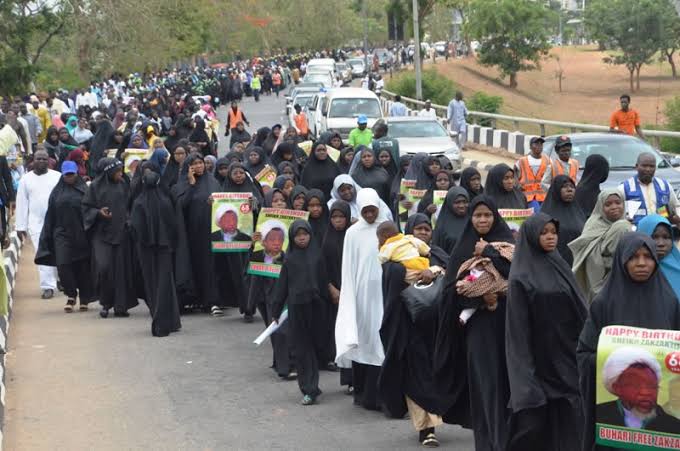Africa
A Secular Country And Sectarian Fires -By Ike Willie-Nwobu
In responding to perceived threats by individuals or groups, the Nigerian army and other security agencies must also commit fully to following the law. Nigeria has its hands full presently with multiple security threats. It cannot in any way seen to be exacerbating or complicating matters.

An old rivalry was renewed with bloody consequences on Friday when the Nigerian military disrupted a protest by members of the Islamic Movement of Nigeria(IMN) in Abuja. About five persons were killed and scores arrested when the protesters clashed with Nigerian soldiers. A security operative was also lost in the skirmish.
The group has a history of confrontation with security agents.
In 2015, Zaria, Kaduna provided the theatre for a titanic confrontation between members of the movement sect and Nigerian soldiers. Hundreds of its members were killed while its leader, Sheikh Ibrahim Zakzaky was put on trial.
The trial ended in 2016 when he was discharged and acquitted by the court.
Zakzaky may have been discharged and acquitted, but the flashpoints which flare up occasionally is a sign that the sect has neither forgotten nor forgiven what was done to it in Kaduna State.
Occasionally, the movement organizes protests and processions which sweep through major parts of Abuja. During these protests, the sect is never shy about getting confrontational.
Nigeria is and remains a secular country. The constitution of the federal republic of Nigeria is the source of all laws, powers, and legitimacy within the country. To jealously protect the country and ensure that Nigeria is never defined as a theocracy, the constitution pronounces clearly and proudly the secular status of the country.
This means that while citizens have a to freedom of religion, it is illegal a d unconstitutional to cast Nigeria as a country which leans towards any religion.
But it is no leeway to crush religious sects or suppress religious beliefs or religious minorities in the name of state security.
Experience has shown that mismanaging these sectarian flames often results in destructive conflagrations. History instructs extreme care.
Why does this keep happening? Why does the government often have to violently confront the sect? Since this problem has been around for many years now, why has the government not devised a permanent solution to what has become a tangible security threat to Nigerians?
The movement should do well to call its members to order. It was only in 2015 that that their modus operandi led to a bloodbath at the hands security personnel acting on the orders of the Kaduna State government.
The movement must make it abundantly clear to all its members that their rights stop where the rights of others begin, and their religious activities cannot be seen or shown to threaten other citizens.
Nigeria is a constitutional democracy and by reason of that incontestable fact, the actions of every citizen and group bar none must be seen to meet the strictures of not only democracy but constitutionality. This is crucial to ensuring the survival of Nigeria as a country.
In responding to perceived threats by individuals or groups, the Nigerian army and other security agencies must also commit fully to following the law. Nigeria has its hands full presently with multiple security threats. It cannot in any way seen to be exacerbating or complicating matters.
Ike Willie-Nwobu,
Ikewilly9@gmail.com

























